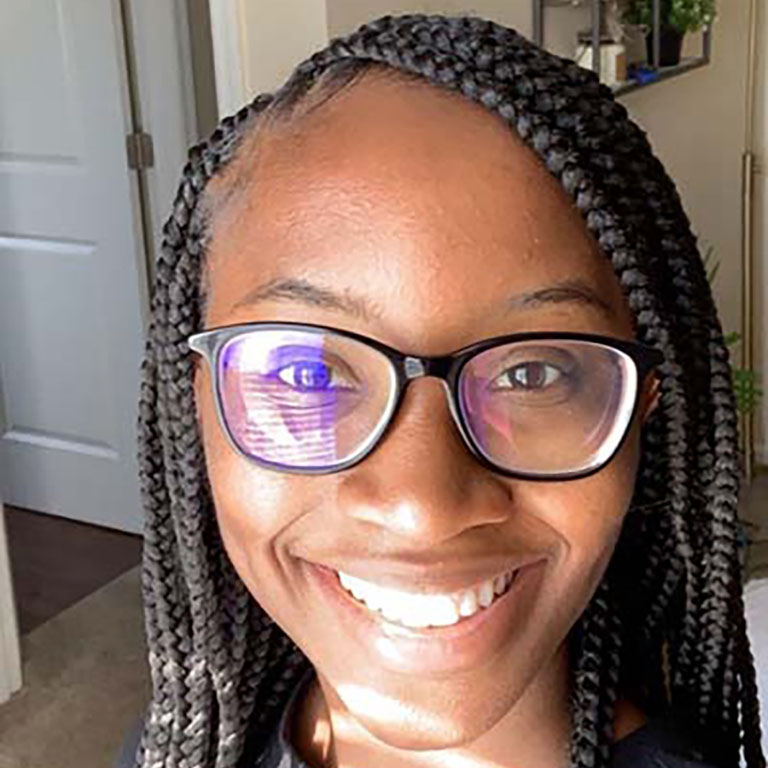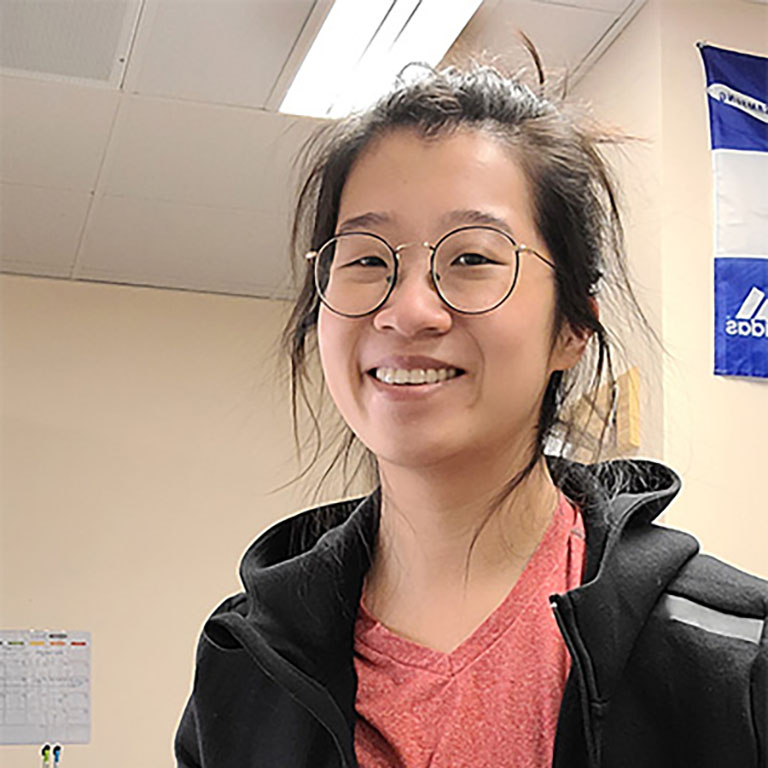Burgess said that having both degrees give doctors a unique perspective on disease treatment.
“When you’re in clinic, you follow the algorithms and protocols you’re taught until new ones come out. However, being a physician scientist, I can work in clinic while progressing the science that drives those protocols,” she said. “With this program, I can explore a treatment algorithm in the lab, then maybe five years later be following it myself in clinic. I’ll be progressing science and seeing firsthand how it helps patients.”
She’s doing some of that already in the only program of its kind in Indiana: the Precision Genomics Program at Riley at IU Health, which develops personalized treatments for children with aggressive cancer.
“I’m really proud of that work. Through the core, students like me and other cancer researchers can access b sequencing data from a patient’s tumor, elucidate any aberrations, address those aberrations through experiments in lab, and all the while the patient continues to receive care at Riley. It is very translational in that aspect,” she said.
Growing up in New Jersey, Burgess became intrigued by the medical care given to her ailing mother and brother but had no way of knowing what being a doctor was like. A love of science drove her in college to major in biochemistry “to get my footing,” she said, and she tacked on two minors to give herself more career options.
Even then, she still wasn’t entirely sure what to do when she graduated. She’d volunteered at hospitals and gained some research experience. A biotech startup in North Carolina’s Research Triangle hired her to head up the microbiology lab.
“I got bored,” Burgess admitted. “I was designing my own protocols and experiments. But in a pharma company, at the end of the day your job is done.”
Wanting more, she joined a pediatric oncology lab to conduct research around rhabdomyosarcoma, the most common type of sarcoma found in children.
“I was happy! I got to shadow my principal investigators, who are experts in their field, and I thought, ‘This is cool!’” she said. “So, I decided to dive in.”
Several universities invited Burgess for medical school interviews. IUSM’s approach stood out, she said.
“In these interviews, you’re grilled about your research, where your interests lie, how much you know about their programs and so on. Some schools just presented themselves like, ‘You need us more than we need you, so prove why we should have you here,’” Burgess said. “IU was more like, ‘Everybody who makes it to an MD/PhD interview is an exceptionally skilled person already. We respect that.’ They were much more welcoming and knew what opportunities they could offer that I would be interested in. I felt valued.”
The Hester Scholarship has reinforced that feeling.
“It’s already enabled me to get supplies for the lab. I have travel money. I’m going to the Children’s Tumor Foundation conference this summer with that funding. And the Hester Scholarship application was the first time I had spelled out my research and career trajectory, which is something I’m going to have to do for the rest of my career to get grants and funding. It was an awesome way to do that.”






